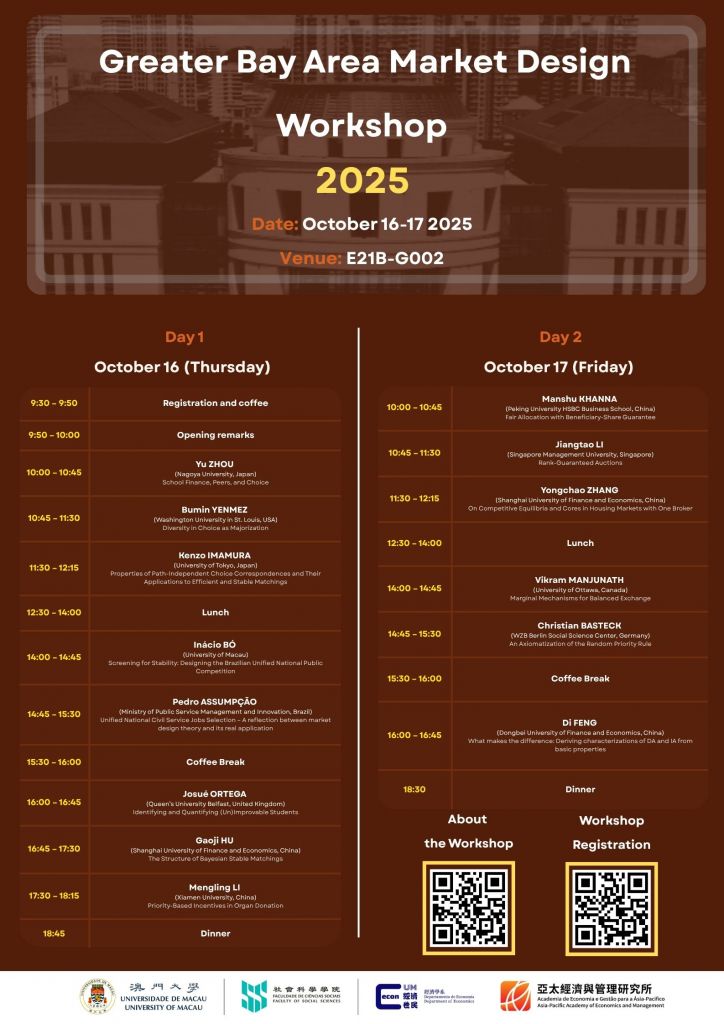FSS ECON Greater Bay Area Market Design Workshop 2025
Date: 16-17 October, 2025 (Thu & Fri)
Time:9:50-12:15; 14:00-18:15 (16 Oct 2025, Thu)
10:00-12:15; 14:00-16:45 (17 Oct 2025, Fri)
Register: https://go.um.edu.mo/6l00gnxr
Venue: E21B-G002
Language: English
About this workshop: The Greater Bay Area Market Design Workshop 2025 convenes leading scholars and practitioners to explore the next frontier of economic engineering: designing markets and allocation systems that are not only efficient but also resilient, fair, and adaptable to the complex challenges of the 21st century. As a pivotal subfield of economics, market design provides the theoretical and practical toolkit for solving critical resource allocation problems, from matching students to schools and doctors to hospitals, to designing robust auction platforms for public resources and digital marketplaces. This workshop aims to dissect these complex mechanisms, focusing on their real-world implementation and impact.
Building on the success of previous years, the 2025 workshop has a clear set of objectives. First, it seeks to foster a deep, interdisciplinary dialogue that bridges cutting-edge theoretical advancements with pressing policy applications. The program is crafted to showcase research that moves from abstract models to tangible solutions, with sessions dedicated to work in areas such as the design of national civil service exams, fair allocation in housing markets, and innovative auction formats. This emphasis on applicability ensures the discussions remain grounded in their potential for societal benefit.
Second, the workshop is dedicated to strengthening the global network of market design expertise. It serves as a unique nexus, connecting the vibrant and rapidly growing research community within China’s Greater Bay Area with internationally renowned centres of excellence in Asia, Europe, North America, and beyond. By facilitating this exchange of ideas, we aim to accelerate innovation and cultivate a collaborative spirit that transcends geographical boundaries.
Finally, a core mission is to provide a platform for emerging scholars to present their work alongside established leaders in the field. We aim to spotlight novel contributions that challenge conventional wisdom and introduce new methodologies, whether in understanding the strategic behaviour of participants, the axiomatic properties of matching algorithms, or the structure of stable outcomes under uncertainty.

